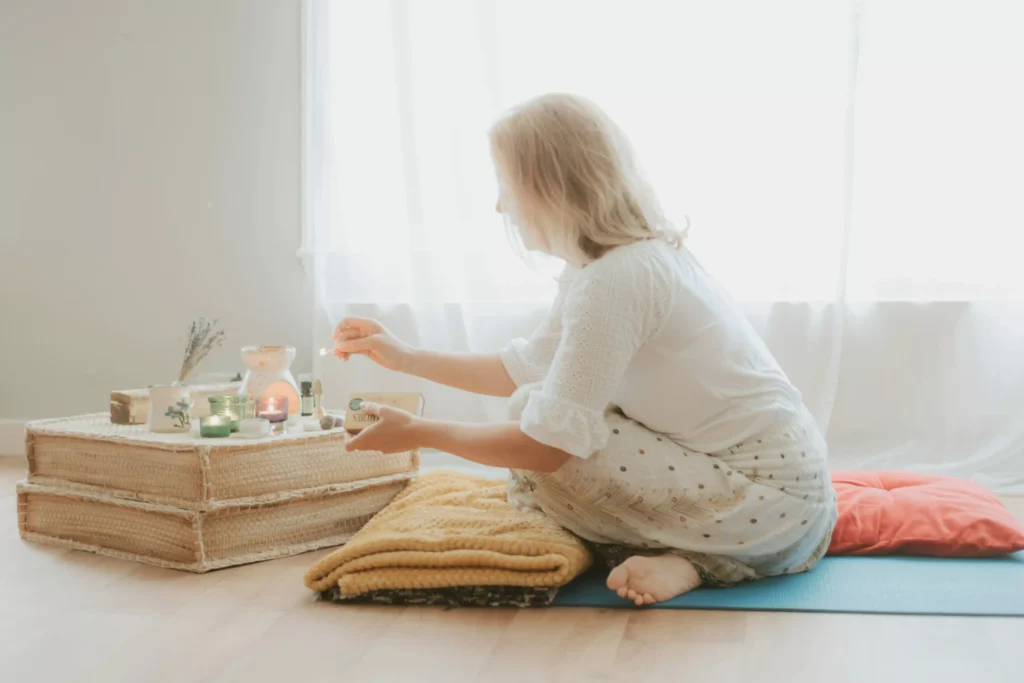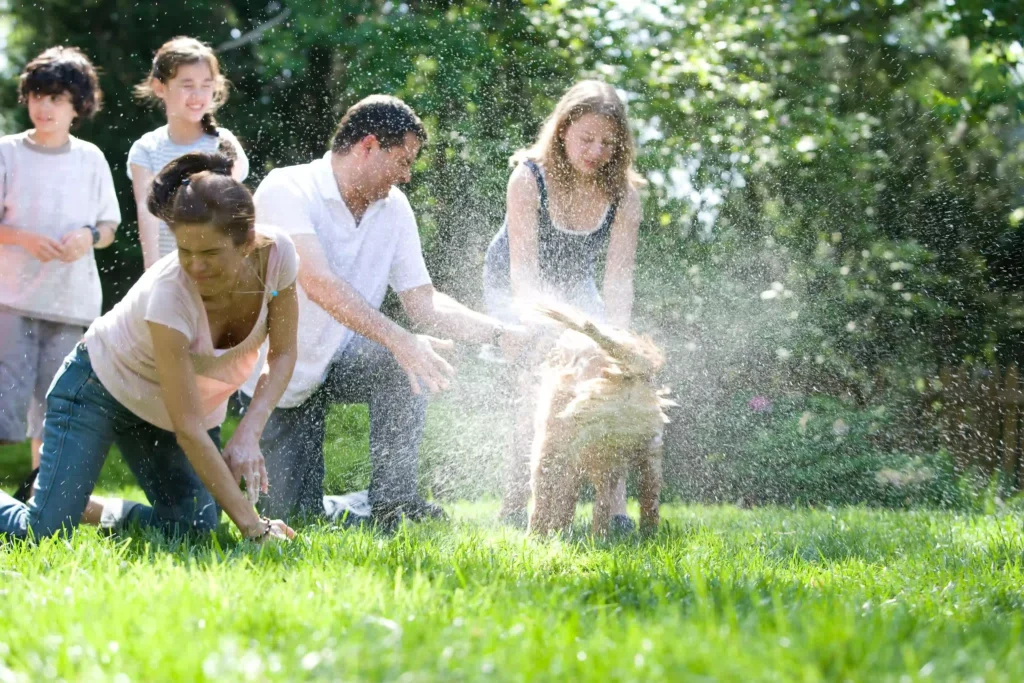Self Care Activities for Adults: 13 Ways to Recharge Today
Introduction
Are you feeling drained, overwhelmed, or stuck on autopilot? In today’s fast-paced world, carving out time for self care activities for adults isn’t a luxury—it’s essential. Research shows that intentional self-care reduces stress, boosts mood, and improves productivity.¹ In this article, you’ll discover 13 rejuvenating practices designed to help you reconnect with yourself, reset your energy, and cultivate lasting well-being.
Growing up, I watched my mother quietly master the art of balance. Her simple rituals—an early morning walk, quiet time with tea, or tending to her small garden—were her way to beat burnout before it began. Back then, I didn’t realize those were intentional self care activities for adults. Today,
I follow her lead, finding my own ways to recharge and rejuvenate, inspired by her calm strength. Her daily rhythm taught me that even the most revitalizing self-care tips can come from the heart, and that lasting adult wellness ideas often begin at home.
Table of Contents
🌿 Beat Burnout with These Revitalizing Self-Care Activities for Adults
After a long stretch of overworking and constant fatigue, I finally admitted I was facing burnout. That’s when I committed to exploring self-care activities for adults that truly helped me recharge and rejuvenate—not just zone out.
Starting with mindful walks and weekly digital detox days, I discovered how impactful small, consistent changes could be. I even tried new self-care activities like creative journaling and aromatherapy, which brought unexpected joy. Over time, I built personal stress relief strategies that actually worked.
One of the best revitalizing self-care tips I learned? Treat your rest like an appointment—non-negotiable. These simple shifts helped me regain energy and reconnect with my well-being, proving that adult wellness ideas aren’t a luxury—they’re essential to beat burnout.

The Bigger Picture
Modern life bombards us with emails, deadlines, and obligations. According to the American Psychological Association, 77% of adults report physical or emotional symptoms of stress.² Without mindful interventions, chronic stress can lead to burnout, weakened immunity, and mental fog. Embracing self care activities for adults isn’t just pampering—it’s a science-backed strategy for resilience. Culturally, we’re shifting from hustle culture to holistic living: from green living and mindful self-care to natural health solutions.
💛 Recharging with Love: A Simple Self-Care Ritual That Changed Everything
One evening, completely drained, I lit a candle, turned off my phone, and baked banana bread while my favorite jazz playlist played softly in the background. It wasn’t fancy, but it was mine—a small, soulful moment of peace.
That night reminded me how powerful self-care activities for adults can be when done with much love. Since then, I make time each week for little rituals that help me recharge and rejuvenate with intention and heart.
1. Mindful Meditation
1.1 What Is Mindful Meditation?
Mindful meditation is the practice of observing thoughts and sensations without judgment. It roots you in the present moment and interrupts the “monkey mind.”
1.2 Why It Matters
- Reduces cortisol (the stress hormone) by up to 30%.³
- Enhances attention span and emotional regulation.
- Increases gray matter in areas linked to memory and compassion.
1.3 Practical Tips
- Start with 5 minutes daily; use apps like Insight Timer or Headspace.
- Focus on your breath or a simple mantra (e.g., “I am calm”).
- Try a guided body-scan meditation to release tension.

2. Nature Immersion
2.1 Forest Bathing and Green Time
“Forest bathing” (Shinrin-yoku) involves slow, mindful walks in nature. It lowers blood pressure and uplifts mood.
2.2 Urban Green Spaces
- Find a local park, botanical garden, or riverside trail.
- Practice “grounding” by walking barefoot on grass or soil.
2.3 Quick Ideas for Busy Adults
- Place potted plants at your desk for a mini-green oasis.
- Listen to nature soundtracks during breaks.
Keywords & Variations: outdoor self-care, ecotherapy, nature-based wellness
3. Creative Expression
3.1 Why Creativity Heals
Engaging in art, music, or writing activates the brain’s reward centers and fosters emotional release.
3.2 Simple Projects to Try
- Art journaling: Doodle, collage, or watercolor your feelings.
- Adult coloring books: Color intricate mandalas or nature scenes.
- DIY crafts: Make soy candles or natural lip balm.
3.3 Tips for Consistency
- Dedicate a “Creative Hour” weekly.
- Join local art or craft groups for accountability.
Keywords & Variations: artistic self-care, healing through art, mindful creativity
4. Movement & Exercise
4.1 Beyond the Gym
Not everyone loves cardio machines—find joyful movement that feels good.
4.2 Low-Impact Activities
- Yoga or Pilates: Focus on breath, alignment, and flexibility.
- Tai Chi: A gentle martial art that blends movement and meditation.
- Dance: Put on your favorite playlist and move freely.
4.3 Tips to Stay Motivated
- Pair workouts with podcasts or audiobooks.
- Schedule sessions with a friend or online class.
Keywords & Variations: adult fitness routines, mindful movement, holistic exercise
5. Nourishing Rituals
5.1 Mindful Eating
Savor each bite, note flavors and textures, and avoid screens while eating.
5.2 DIY Spa at Home
- Herbal foot soak: Epsom salt + lavender essential oil.
- Facial steam: Add chamomile or mint to hot water and breathe deeply.

5.3 Herbal Teas and Infusions
- Try adaptogenic blends (ashwagandha, holy basil).
- Sip peppermint or ginger tea for digestion and calm.
Keywords & Variations: self-care nutrition, holistic spa day, wellness rituals
6. Digital Detox
6.1 The Screen-Stress Connection
Constant notifications spike stress and fragment focus.
6.2 How to Unplug
- Set “No-Phone” zones (bedroom, dining table).
- Use app blockers during focus hours (Forest, Freedom).
- Replace scroll time with reading a physical book or going for a walk.
6.3 Weekend Reset
Plan a half-day digital sabbath: turn off internet-connected devices and reconnect with offline life.
Keywords & Variations: screen time reduction, tech-free self-care
Common Mistakes or Misconceptions
- Believing self-care requires hours of commitment.
- Reality: Even 5–10 minutes of a mindful breathing exercise counts.
- Treating self-care as optional or indulgent.
- Reality: Regular self-care is linked to lower rates of anxiety and depression.
- Comparing your routine to others.
- Reality: Self-care is highly personal—what rejuvenates you may differ from friends.
- Expecting instant transformation.
- Reality: Consistency builds resilience; small daily habits yield big results over time.
- Ignoring emotional self-care.
- Reality: Mental check-ins and journaling are as vital as bubble baths.
Advanced Tips, Techniques, or Practices
- Polyvagal exercises: Stimulate social engagement system with gentle humming or gargling.
- Somatic therapy practices: Release trauma stored in the body via movement and breath.
- Aromatherapy layering: Combine essential oils (lavender + bergamot + cedarwood) to target specific moods.
- Biofeedback apps: Use wearable tech to monitor heart-rate variability and practice stress-reduction in real time.
Tools, Resources, or Product Suggestions
- Insight Timer (app): Thousands of free guided meditations.
- The Five Minute Journal (book): Structured prompts for gratitude and self-reflection.
- Theraband Resistance Bands: Portable for strength and mobility work.
- Local herbal apothecary: Stock up on adaptogens and herbal teas.
- Indoor plants (e.g., snake plant, pothos): Improve air quality and mood.
- NaturalNiceHealth.com’s “Holistic Morning Routine” (internal link): Learn how to kickstart your day with balanced energy.
Long-Term Benefits and Lifestyle Integration
Short-Term Gains:
- Immediate stress relief and mood uplift.
- Better focus, creativity, and sleep.
Lasting Changes:
- Enhanced resilience against burnout.
- Stronger mind-body connection and emotional intelligence.
- Sustainable habits that support green living and holistic wellness.
Over months, small rituals become part of your identity—transforming you from “stressed professional” to “balanced adult.”
Personalized Scenarios or Stories
- Sarah, the Busy Parent: Implements daily 3-minute breathwork before school drop-off. Feels calmer and more present with her kids.
- James, the Corporate Pro: Swaps one evening of TV for a solo walk in a neighborhood park. Notices creativity spikes at work.
- Maya, the Graduate Student: Uses art journaling during study breaks. Reduces exam anxiety and sparks new research insights.
Step-by-Step Plan or Implementation Guide
Week 1: Foundation
- Day 1–2: Try a 5-minute breathing meditation.
- Day 3–4: Schedule a 10-minute walk outside.
- Day 5–7: Journal one positive moment daily.
Week 2: Expansion
- Add a 5-minute digital detox in the evening.
- Experiment with a quick DIY spa ritual.
- Attend one online yoga or dance class.
Week 3: Customization
- Mix and match two practices daily (e.g., yoga + nature sound bath).
- Track mood changes in a self-care log.
- Adjust timing to fit your lifestyle (early bird or night owl).
Ongoing:
- Review your log monthly.
- Identify top 3 favorite practices and deepen commitment.
- Share your journey with a friend or online community for accountability.
Personal Guidelines to Stay Motivated
Try these three simple but powerful steps:
- Schedule your wellness time like any important meeting—this is how you start to truly beat burnout before it takes hold.
- Every Sunday, choose one or two new self-care activities to try—keep it fresh and exciting. This could be an inspiring podcast, a 10-minute stretch, or even a few deep, mindful breaths.
- Write down how each practice makes you feel. Rereading your reflections on hard days turns simple moments into revitalizing self-care tips and keeps your stress relief strategies alive and effective.
By staying consistent and intentional, you’ll turn everyday habits into powerful adult wellness ideas that nourish your mind and soul.
Conclusion
Self care activities for adults are not one-size-fits-all—they’re invitations to explore, recharge, and flourish. By integrating small, research-backed habits into your routine, you build emotional resilience and vibrant health. Start with one practice today—whether it’s a 5-minute meditation or a short nature stroll—and watch your energy bloom. Ready to reclaim your well-being? Share your favorite self-care activity in the comments, and don’t forget to subscribe for more natural health tips!
FAQs
Q1: How often should adults practice self-care activities?
A1: Aim for daily micro-breaks (5–10 minutes) plus at least one weekly self-care “deep dive” (30–60 minutes).
Q2: I’m short on time. What’s one quick self-care activity I can do anywhere?
A2: Deep belly breathing for 3–5 minutes—inhale for 4, exhale for 6—can reset stress instantly.
Q3: Can self-care activities for adults help with anxiety?
A3: Yes. Techniques like meditation, nature immersion, and journaling are shown to reduce anxiety symptoms significantly.
Q4: Do I need special equipment to start?
A4: No. Many practices require only your breath, body, or a pen and paper. You can scale up with apps or props as you go.
Q5: How do I stay motivated to keep a self-care routine?
A5: Track progress in a journal or app, set reminders, and enlist a friend or community for accountability.
Q6: What if I miss a day or slip up?
A6: Be gentle with yourself. Self-care is about consistency, not perfection. Simply pick up where you left off.
¹ American Psychological Association, “Stress in America” Survey, 2023
² APA, ibid.
³ Journal of Psychosomatic Research, 2020.

